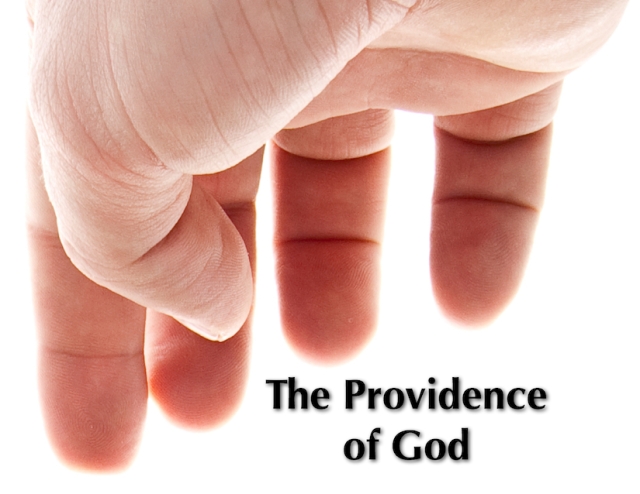What does Proverbs 22.6 say?
Train up a child in the way he should go,
And when he is old he will not depart from it.
– Proverbs 22.6
How do most people interpret it? Train a child to be a Christian, and he will never fall away. If he does fall away, you failed to train your child properly. If he does fall away, he will return.
However, I have never believed this interpretation and I do not believe it conforms to the purpose of the Book of Proverbs. See Proverbs 1.1–7.
Why do we think Proverbs 22.6 has to do with training them to be Christians? It is the last six words of the first line, “in the way he should go,” that people misunderstand Solomon to mean Christianity. However, that cannot be separated from the first couple of words, that of training up a child.
What does it mean to train? I believe it is understanding this word in this context that will show the true meaning of this passage.
The Need for Cultivation
Think of Proverbs 22.6 in the sense of cultivation. Does this verse refer to religion? Does it teach that children have no choice? How does that jive with other biblical teachings? What about what the Bible says about falling away? Does it teach that all is dependent upon the parents?
Consider this meaning. The marginal reference of the American Standard Version (ASV) of 1901, on the words, “in the way he should go,” has this: “Heb. according to his way.” What does that mean? Is it saying that the children should set the rules? The idea is this, “As the twig is bent, the tree’s inclined,” and it should not be bent contrary to its nature. Train a child according to his nature and disposition. It centers on the method of the training, not the message of the training.
Consider what some commentators have written:
“Initiate, and so, educate. Or, according to the tenor of his way, i.e. the path specially belonging to, specially fitted for, the individual’s character. The proverb enjoins the closest possible study of each child’s temperament and the adaptation of ‘his way of life’ to that” (Barnes).
Franz Delitzsch translates it Proverbs 22.6 as:
Give to the child instruction conformably to his way;
So he will not, when he becomes old, depart from it.
Then he made this comment:
“The instruction of youth, the education of youth, ought to be conformed to the nature of youth; the matter of instruction, the manner of instruction, ought to regulate itself according to the stage of life, and its peculiarities; the method ought to be arranged according to the degree of development which the mental and bodily life of the youth as arrived at.”
“The training prescribed is lit. ‘according to his (the child’s) way’, implying, it seems, respect for his individuality and vocation, though not for his self will (see verse 5, or 14:12). But the stress is on parental opportunity and duty” (Kidner).
I also consulted with Dale W. Manor, Professor of Archaeology and Bible, Harding University: “I have long viewed Proverbs 22.6 as explaining how you should train your child as opposed to the common interpretation that says, if you train them to be a Christian, they will never fall away.
There are several reasons why I believe the conventional view is not correct. One of those reasons is the marginal note in the ASV of 1901, as they referenced, ‘in the way he should go,’ with, ‘Heb. according to his way.’ Not that we should follow the way the child wants to be trained, but that we should train each of our children in a way that is harmonious with their character.
Another reason is how William McGuffey, of McGuffey’s Readers, used the passage. I have attached a PDF of a class that he taught, using Proverbs 22.6, and I think that he was spot on. I am writing to you for your translation or understanding of Proverbs 22.6 in the Hebrew since I do not know Hebrew and you do. Yes, I have decided already what I think the passage means, but I am open to what you said the Hebrew says, and especially if the marginal note in the ASV is correct.”
[That class of McGuffey’s is below]
Professor Manor replied: “First, the phrase under consideration is unusual and Murphy (Proverbs in Word, p. 165) says that it is ‘obscure Hebrew.’ The extremely literal rendering is ‘according to the mouth of his way.’ Idiomatically the series of words appears as ‘in accordance with his way’ (Koehler-Baumgartner, Hebrew-Aramaic Lexicon, v. 3, p. 916). The issue thus remains open to exactly what ‘his way’ is which I think is where you are focusing. The effort to beat one’s self up over children that have gone awry is not the issue, especially since the book of Proverbs indicates the possibility of children deviating from the desires/expectations of the parents (cf. Pro. 10:1; 15:20; 17:21; 17:25; 19:13; 19:26; 28:7; 28:24; 29:3; 30:17). In the list of passages there is no reason to infer that the effort of the parent was necessarily remiss. Your proposal (e.g. that of McGuffey as well), however, is probably a good perspective to put on it, although at the same time, it is critical to realize that Proverbs often speaks in broad stroke generalities and should not be taken as a scientific type chemical reaction.”
Consider what William McGuffey (of McGuffey’s Readers fame) taught. The following is from McGuffey and His Readers, by John H. Westerhoff III.
“Teacher. How is teaching like training?
Pupils. We do not very well understand what is meant by training. Solomon says in the book of Proverbs, “Train up a child in the way he should go, and when he is old he will not depart from it.” But we never were sure we understood him.
T. You know what training a vine is?
1st P. It is to direct it right.
T. But why does it need directing?
1st P. Because it would grow in wrong directions if it were not trained or directed.
T. Does a dead vine need training?
Several of the pupils at once – No sir, because it does not grow, and therefore cannot go wrong.
T. But when a vine or any vegetable does grow, why would it go wrong if not trained?
2nd P. Because it does not know how to go right, nor to take care of itself.
3rd P. And if it did, it is not strong enough to support itself unless its tendrils were directed to something which they may take hold on, and thus support the whole vine.
T. It is best then that vines should be trained that they may not grovel on the ground, nor stray through the palings, where they might, and most probably would be trodden upon and destroyed by the mischievous and the careless. But which needs training most—the feeble or the vigorous vine?
Part of the pupils—The feeble—others, the vigorous.
T. There seems to be a difference of opinion on this subject. Let us examine it a little. Why do you (addressing one of the youngest who had given the first answer,) think that the feeble vine should have the most care taken of it? Because it is least able to take care of itself. (A pupil who had joined in the second answer.) But taking care is not exactly training. Besides, the luxuriant vine is as much heavier in the top, as it is stronger in the stem, and needs to be held up as much as the stunted one, which if it is weak, hasn’t much to carry.
2nd P. And there is not much danger that the vine which doesn’t grow will get through the palings, even if it should go in that direction.
3rd P. And I remember to have heard my father say that those vines which flourished most, needed the most pruning.
1st P. But if “taking care” isn’t “training”, I wish to know whether “pruning” is. Does not the geranium require more care and skill to cultivate than the night shade does? Does not the sick lamb need the most care? The youngest bird the best food? The draggled kitten the warmest place on the rug? And my little sister, because she is weak and sickly needs more care, and protection.
3rd P. But does it take more to keep out of the street or out of mischief?
All who joined in the first answer—We still think the feeble vine most needs training—and we (quickly replied, the others) still believe the strong vine does.
T. Allow me to reconcile, if I can, your apparently different opinions. It happens to you, as to older persons, to dispute where there is really no difference of opinion. The feeble vine does need more care, and this a part of what is meant by training. This was well illustrated by reference to the geranium, the lamb, etc. But the vigorous and luxuriant vines need as much support, and more pruning than the other, all of which is also implied in training. This was well stated in the question whether the sickly little girl was more difficult to keep out of the street and out of mischief, than the more robust members of the family, who were nearly the same age. But let us not forget the question with which we set out. “What resemblance is there between teaching a child and training a vine?”
Several pupils at once—We know now.
T. Well, let us hear?
1st P. Feeble minds must be taken most care of.
2nd P. And active ones will require the most guarding.
3rd P. And luxuriant minds the most pruning. But, I don’t think I clearly understand what can be meant by pruning a mind.
Several pupils together—We are sure we do not.
T. Let me explain it to you then. Those persons who are most active are in the greatest danger of going wrong, if they do not know how to go right; or are not careful to do as well as they know. They need more frequently therefore to be directed and controlled by their friends, than those who are more sluggish. Those young persons, again, who have very vigorous and active minds, are like the vigorous vine whose growth is rapid, and whose branches and leaves are shooting out on all sides, so as to weigh down the stock and exhaust the vigor of the roots. Such minds are ready to stray off into a thousand unprofitable and even mischievous directions, so as to exhaust their energies, that ought to be directed to some profitable end. Such persons are full of resources and fertile in plans; but often, indeed always, in youth require the skillful bond of discipline to repress their extravagance, to guide their growth, and to lop off their redundancies.
5th P. Do then the smartest boys need the most discipline?
T. The most active and vigorous minds often do, but not always. Such minds are however best worth the trouble they cost. But smart boys are generally very worthless. It is the intelligent, honest boy, that usually rises by his modest merit to eminent usefulness. But we have said nothing yet on the last part of the verse from Proverbs, which some of you quoted in the commencement of our conversation. What can Solomon mean, when he says that the child who is rightly trained will not depart from the right way when he is old?
3rd P. I think I can tell.
T. Your classmates will probably thank you to do so.
3rd P. When a vine has become old it keeps its set, do as you will. You can easily turn a green vine another way, but when it is dried, it will break first.
5th P. But you can’t make a bean vine wind round the pole in the same direction, as a hop vine does. I have tried it often, and they won’t stay so a single night. One will wind round with the sun, and the other against the sun.
T. You are both right again, you can give any direction you please to a young vine, if it be not contrary to its nature. And both the kinds of vine mentioned may be trained pretty much as you please while green. But neither of them will let go their hold, when once they have been set by age. It would destroy them to be rift off.
1st P. It is plain enough then, what is meant by our not departing when we are old, from the ways in which we were trained while young. Old men keep on in the way in which they have gone while they were growing old—just as the old vine becomes dried in the shape which it took while it was green.
2nd P. May not that be the reason why good men and bad men will never change after death?
1st P. I believe it is. You remember (addressing the teacher) you once told us that this was the force of habit.
3rd P. I see it now much plainer than ever before. As long as the vine was nourished from the earth it was green and soft, though its nature could not be forced, it might be turned from its course. But when it ceased to draw its support from earth, it became fixed so that it could not be changed any more than a man’s character can become vicious after he has gone to Heaven.
T. Your philosophy is good, though there might be objections to your mode of stating it. But we must now close this conversation. We may resume it again should it seem best. You see of what importance it is to have the right kind of training, for our characters will certainly be such as our habits have been.
[This excerpt illustrates that Proverbs 22.6 is dealing with character, mentality, habits, skill. Don Ruhl]
This passage deals with a child’s, not the parent’s, character, mentality, habits, and skill, not his Christianity.
Consider this about two great Americans.
Have you heard of Pop Warner? Growing up as a kid, to me, it was simply the football equivalent of little league. Later, I learned that he was a famous football coach and that he trained one of America’s greatest athletes ever.
“Pop Warner, a football coach, had a bunch of Indians on his football team. He tried to get them in shape. He had them doing calisthenics like all football players do. They didn’t like it. He couldn’t get them to do it. He didn’t say all Indians were lazy because these boys didn’t do the calisthenics to get in shape. Instead, Pop Warner went around and talked with some of the Indian parents to find out what could be done. With their help, he figured out a new way to motivate them. He loaded his Indian players on the school bus and went two miles away from the college. He put each one of the players off the bus and handed them a tow sack. He said, “Take this tow sack, go out there and catch two rabbits any way you want to. Then run back to town as fast as you can.” They did it! They got in shape. He learned to motivate these fellows based on their background, not based on his. As a direct result, he had a nation’s champion in his caliber of football teams. There was one fellow in particular, a 158-pound fullback who was not very big for a fullback, but was a great athlete. His name was Jim Thorpe. I doubt that Jim Thorpe could have become the outstanding athlete that he was if Pop Warner had not learned to motivate him based on his background.”
– Monroe and Ehninger, Speech Communication, Page 115
When parents guide their children according to their interest, desire, talent and natural skill, they excel, because they are training them in the way that they should go.
Raising Children is never easy but it is hard work and very rewarding.





